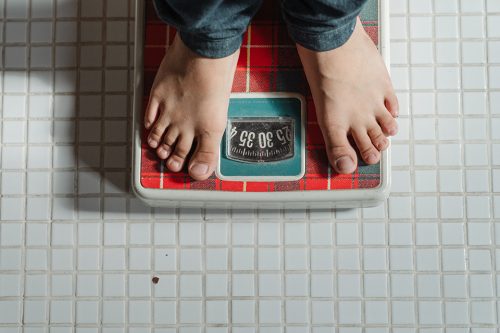
Your Hormone Cycle Is Having A Bigger Effect On Your Weight Than You Think
Staying healthy can feel like an overwhelming task sometimes.
There are so many different factors that affect our health – how much sleep we get, how much we move, and what we eat all play a key role. But there are also internal factors that affect how our bodies burn and store fat.
If you want to learn more about your metabolism and how your body breaks down food, take this metabolic living quiz.
One of these internal factors is our hormones and our hormone levels.
Too much of one hormone in our body can make it difficult to put on weight, while not enough of a completely different hormone can cause your body to store more fat.
Our weight also has a dramatic effect on our hormones – for example, underweight women can lose their periods and become temporarily infertile.
Today, we are going to take a deep dive into weight and hormones and how they are tied together.
Hunger Hormones
Let’s kick things off by looking at how hormones affect our hunger.
There are a series of hormones that our bodies release when it is time for us to eat. The hormones trigger reactions throughout the nervous system and prompt us to get eating.
Ghrelin is the main hunger hormone.
It stimulates the hypothalamus which is the part of the brain that makes us feel hungry. It also plays a big role in our sleep-wake cycle.
Some people can produce less Gherlin, but there is no proof that this leads to weight loss or people being underweight.
Fullness Hormones
There are also a series of hormones that tell our body when we feel full.
Cholecystokinin is the most important and common fullness hormone. It works in the lower intestine and is released after our intestines registered an adequate amount of fats and proteins.
Cholecystokinin stimulates the parts of your brain that are responsible for feeling full. It also triggers the release of digestive enzymes from the pancreas. Without this hormone, we wouldn’t digest food properly and we would risk overeating.
Insulin is a hormone that is responsible for monitoring our blood sugar levels and is one of the important fullness hormones.
Menstrual Cycles
Men and women have different hormone cycles. Men have a 24-28 hour hormone cycle whereas women have a 26-30 day hormone cycle. For this reason, women’s weight fluctuates much more obviously throughout the month than men’s.
Women may notice that during the days leading up to their period they feel more hungry, they are bloated, and they are heavier. This is all natural.
Female bodies tend to hold on to a lot of water weight just before menstruation starts, so body weight will go up on these days.
Women may find it unhelpful to weigh themselves every day, instead weighing once a week, with their cycle in mind may be more productive.
How Does Our Weight Affect Your Hormones?
Underweight
Unless an underlying health problem is present, most people who are underweight are not eating enough. This can change our bodies’ hormone functions.
If we are not eating enough food then our body has no fuel to convert into the important hormones and proteins that it needs to function. It has to make a choice about what functions it can keep going.
This is why most of us feel tired when we don’t eat enough and why many women lose their periods when they are underweight.
Diet
Not eating a well-balanced diet can also affect hormone and protein production.
If you are dieting to lose weight, then you should never completely cut out a food group.
For example, many “diet experts” say that you need to cut out carbs to lose weight. However, all of our bodies need carbs to function – they are a key source of energy for us.
Instead, you should be thinking about what types of carbs you should be eating – baked potatoes are much better for you than deep-fried fries.
Lifestyle
Food and what we are eating aren’t the only things that affect our bodies’ hormone production.
The studies show that optimal hormone production requires 7-9 hours of sleep, regular exercise, a good amount of sunlight exposure, and a healthy diet.
If you are struggling to manage your weight then you will want to look at these factors as well as your hormone productions.
These activities are all interlinked, for example, not getting enough sleep can lead to your body wanting to eat more to make up for the energy it lost overnight. If you do not fuel in the right way this can lead to weight loss or gain.
Interesting Related Article: “How Stress Affects Digestion—And What You Can Do About It“

